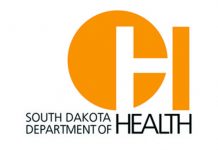Members of the state House and Senate last week undertook unprecedented efforts to restrict access to lobbyists and general public between 8 a.m. and 5 p.m. on legislative days. In lieu of IM 22, and the public’s frustration with the presumption that lobbyists spend their time wining and dining our 105 legislators, the move to restrict public access during the working day was more than a surprise.
The word “lobbyist” on the national level is often associated with big money, but here in South Dakota we lobbyists serve in the role as educator. We help our citizen legislators understand the impact of a bill. For example, our efforts to educate legislators on a bill to provide access to prenatal care for non-citizen mothers during the 2016 legislative session. The bill provided a savings of $200,000 to the state because it prevented higher birth costs in the ER. Our efforts focused on educating legislators with Department of Social Services’ data regarding the cost of births in South Dakota for non-citizens. Through sharing financial history of past cases, legislators voted to pass HB 1110 – a bill that will save lives and taxpayers dollars. (The bill was defeated three prior years – education made the difference in 2016.)
The House’s effort Wednesday to restrict access by banning state agency lobbyists (referred to as “blue badges”) fell short of the votes needed to pass the proposed rule changes. However, the Senate’s Legislative Procedures Committee’s effort to restrict access was deferred and the vote will be rescheduled. The Senate’s proposed rule changes would impose restrictions for all lobbyists and the general public between the hours of 8 a.m. and 5 p.m. Your SDAHO lobbyists, along with the health system advocacy team are sent to Pierre to represent the more than 68,000 employees working in the field of health care. We participate in the process as your eyes, ears and advocate, as many of our members do not have to take time to come to Pierre on their own.
The Senate’s proposal to significantly restrict access would greatly limit your advocacy’s team ability to voice your opinion on matters of importance to our health care community. That needs to be preserved.
We agree that a balance between access and privacy needs to be considered. Certainly, lawmakers need some time to do their work without interruption and the current schedule permits that and has worked for years. The lobbyist core in Pierre is somewhat of an institution itself. It is also comprised of ethical and respectful professionals who believe in the process and value their relationships with legislators. In short, we are a voice for so many South Dakotans who deserve to be heard and have access to their elected officials when they are making important decisions. We hope the Senate will agree.






